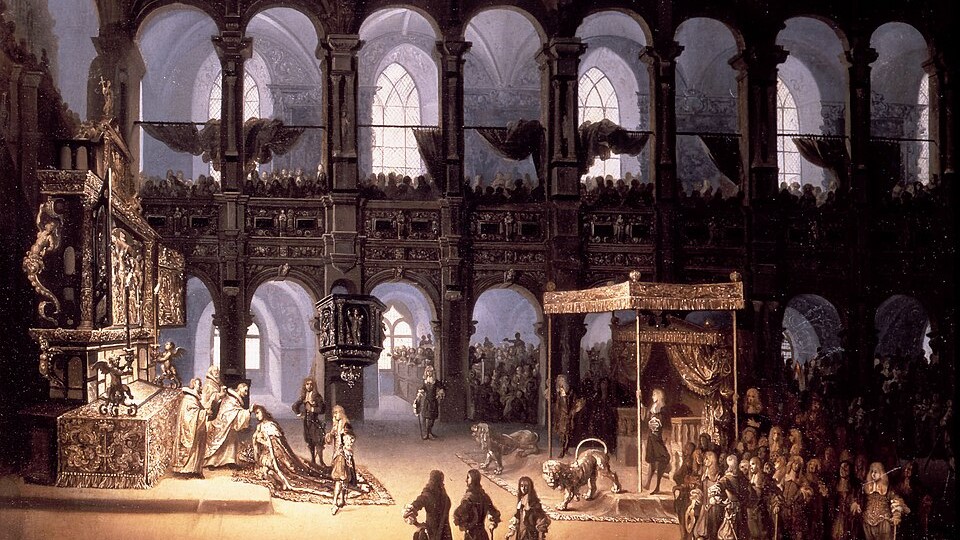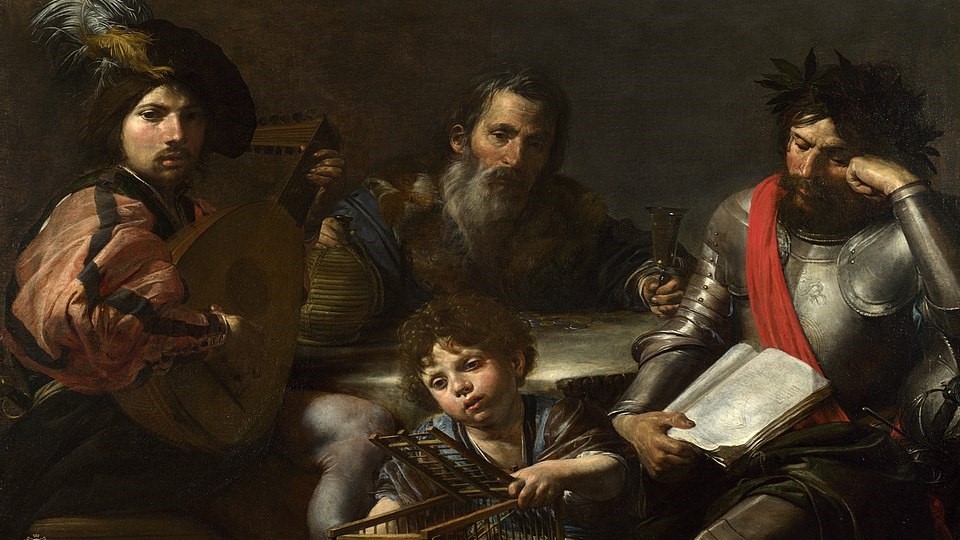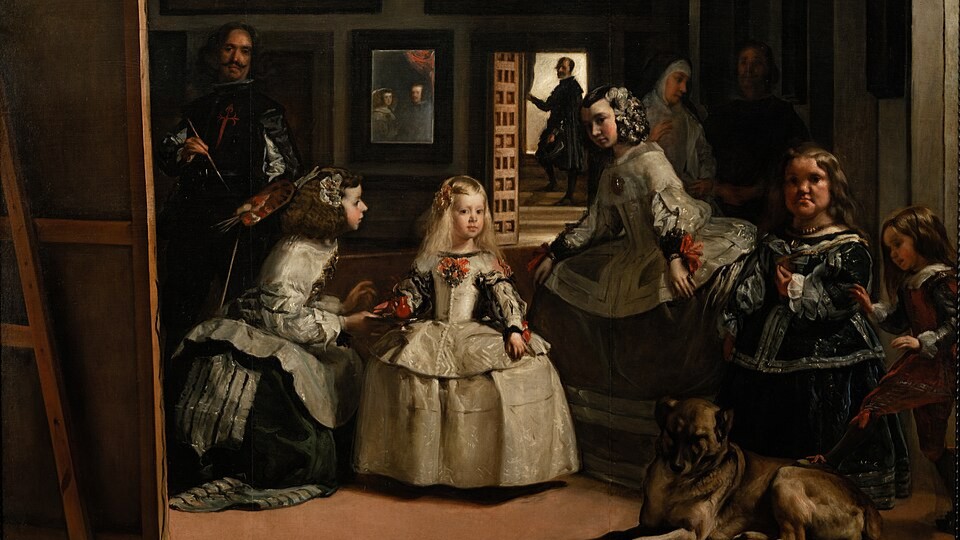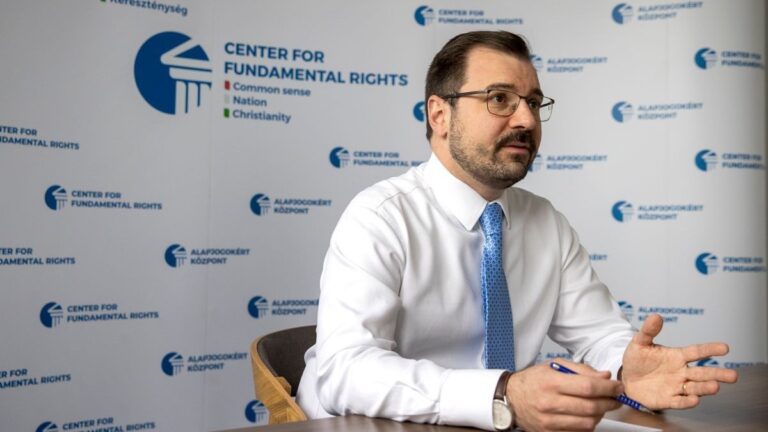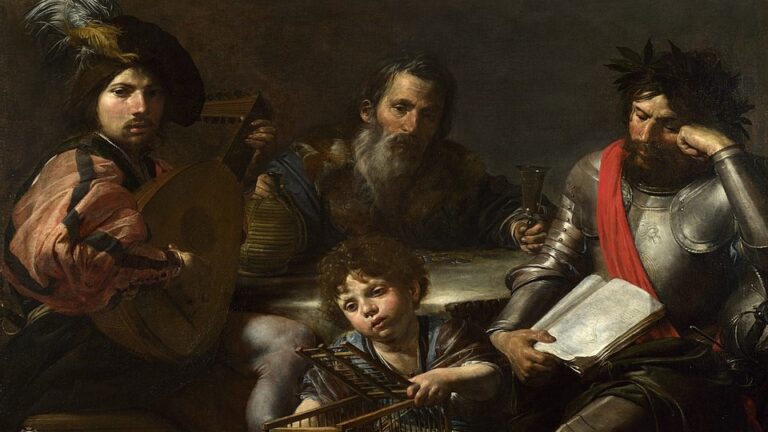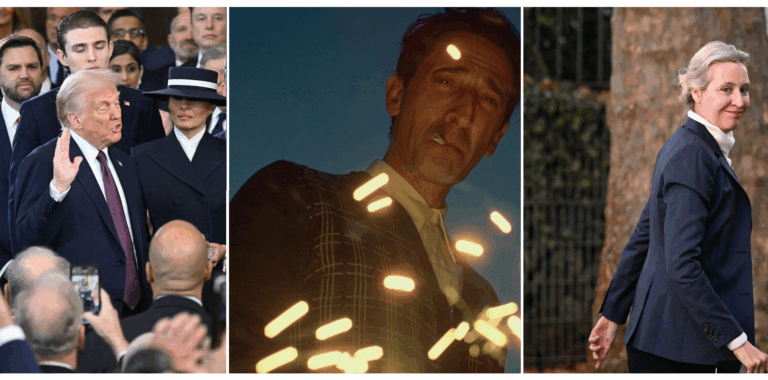You can read the first, second and third parts of the article here.
Kingship
Before modernity, the metaphysical foundation outlined in the previous chapter also determined the nature of politics and the state. According to the principle of analogy (analogia entis), the earthly order had to mirror the heavenly order; human society was a microcosm whose legitimacy was derived from how well it corresponded to the divine harmony of the macrocosm. The state was therefore not conceived as an artificial contract created by members of society or a mere organization of violence, but—from ancient Egypt and China to medieval Christian Europe—as the earthly representation of the transcendent order, a form-giving force that arranges divergent human wills in the interest of a higher purpose. The Latin name for the state itself, status, comes from the verb stare (‘to stand’), and refers to the firm, stabilizing function by which order commands a halt to the forces of chaos and dissolution.
The principled opponents of monarchy have never recognized that a form of ‘coercion’ can exist that is based on the ruler’s genuine spiritual and intellectual excellence, acknowledged and freely adhered to by others. This position, of course, may seem like pure cynicism if one compares the often astonishing mediocrity of ‘popularly elected’ democratic and republican leaders with the long line of great and significant rulers known to history. History knows Caligulas, of course, not just Marcus Aureliuses; however, it would be difficult to justify that because there were Caligulas, there are no Marcus Aureliuses.
The justification of power is, without a doubt, not the same as its worship. Consequently, it was necessary for the people of every age to distinguish between the principles of legitimate, just power and tyranny; it was necessary to define—and to set down in law—the limit that no one with power could cross, and to ensure this, a state of equilibrium—one that exists not between slaves and despots, but between free men and the leaders of the free.
What is the criterion that Plato establishes in the Statesman regarding the possibility of ‘just power’, and what limits does he set for it? Above all, he seems to adhere to the principle that the most ideal situation would be if the supreme power belonged not to the laws, but to the wisdom embodied in the true king. There are also rational considerations for this, such as the fact that an impersonal law is by no means capable of functioning ideally in every case, and the infinite variety of circumstances, situations, and characters does not allow for the mechanistic operation of abstract principles, or if it does, this too breeds injustice. But Plato—likely not with all his heart, but as a concession to human imperfection—ultimately lowered his requirements. He had to take into account that the ruler, however wise, is still a man and not a god, and furthermore, he is not capable of dealing with every case personally. Therefore, it might be better after all to give precedence to the law, and to change it only in very exceptional and justified cases.
But whence do the laws themselves originate, and what ensures their justice? The laws are justified only if they are in harmony with the moral order of the universe, the investigation of which is defined by religion and philosophy. In changing the laws, the principle of wisdom and ‘goodness’ must always be taken into account—that is, the changer of laws must always act in the most just manner possible for him.[1]
In this framework, the ruler could not be merely a successful politician or a ‘Machiavellian’ warlord. His person and his office were inseparable from this transcendent connection. The ruler considered legitimate governed as imago Dei (image of God); not because he himself was considered a god,[2] especially not in the Christian Middle Ages, but because his function—administering justice, maintaining order, and serving the common good—was the earthly analogy of the creative and order-giving divine action. The king’s power thus derived not from himself or the will of the people, but from a source higher than himself, and his legitimacy was given by the responsibility he owed to this source.
This hierarchical idea, mirroring the Cosmos, was solidified by the greatest thinkers of Western thought. The tradition—at least in its recorded, elaborated form—originates with Plato, who envisioned the structure of the ideal state in the image of the human soul and the order of the divine Ideas. This vision was cast into a theological system by the Neoplatonist Dionysius the Areopagite, who drew direct parallels between the heavenly angelic choirs and the earthly ecclesiastical-secular hierarchy. And at the pinnacle of medieval thought, Thomas Aquinas and Dante argued for monarchy precisely with the analogy that the rule of a single sovereign on earth most perfectly reflects God’s sole and ordered rule over the Cosmos. For these thinkers, politics was not a struggle of interests, but a kind of practice of Christian metaphysics: the art of fitting correctly into the God-created order of the earthly world.
This metaphysically-grounded, hierarchical worldview—which completely permeated medieval Christian civilization—though frontally attacked by the Enlightenment, never fully disappeared. In the era after the French Revolution, an entire counter-revolutionary line of thinkers rose to its defence, emphasizing the principles of order, authority, and tradition against the chaos of modernity. Edmund Burke, ‘the father of conservatism’, defended the organic order that crystallizes slowly in history against the abstract terror of revolutionary reason. On the continent, Joseph de Maistre and Juan Donoso Cortés saw the only refuge from revolutionary anarchy in papal authority and theocratic order.
In the 20th century, when the crisis of modernity took on its most brutal form in the totalitarian systems of the right and left, and the Hobbesian Leviathan truly ‘broke its chains’, this traditionalist line was re-strengthened. The reviver of political theology, Carl Schmitt, analysed the divine analogy of the sovereign decision, while the polymath Erik von Kuehnelt-Leddihn defended the virtues of monarchy and aristocracy not only against a formless ‘dictatorship’ but also against the tyranny of mass democracy: going so far as to declare that modern dictatorship and democracy are not at all antitheses of each other, as the similarity between them is greater than the real, but more superficial, differences.
A profound metaphysical critique of modernity was formulated by the thinkers of the traditionalist school, led by René Guénon, who described it as the ‘reign of quantity’. In the second half of the 20th century, this intellectual heritage was carried on along the line of authority by the Hungarian-born Catholic philosopher, Tamás Molnár, who, in works like Authority and Its Enemies and The Two Faces of Power: Politics and Sanctity, also argued that a true and lasting political order cannot be based merely on human agreement; it must be anchored in a transcendent source that surpasses man.[3]
According to most conservative thinkers, the political pinnacle of the traditional order was embodied in the institution of kingship. However, to understand the premodern idea of monarchy, we must forget the modern image of a ‘head of state’; for the king was not merely an administrative or military leader, his office was inextricably intertwined with the sacred. According to his original functions, the king was also a pontifex, or ‘bridge-builder’, between the earthly and heavenly spheres, uniting in his person the political and priestly dignities. This conception—which originally had pre-Christian roots—was transformed in Christianity, where the idea of ‘sacred service’ (ministerium) was emphasized. The person of the king and the state he represented were sacred, not part of profane reality, but an earthly manifestation of a higher order. As Marc Bloch shows in his famous work The Healing Kings, the French and English monarchs healed by the laying on of hands, which made the almost supernatural power of the royal office, derived from divine grace, tangible to the people.[4]
‘The tyrant (tirannus) is distinguished from the just king precisely because he seeks his own benefit instead of the good of the community’
This deeply rooted conviction was expressed in the doctrine of rex dei gratia, or ‘King by the Grace of God’. This principle, often misinterpreted by the modern era as a justification for unlimited tyranny, did not actually mean the deification of the king’s personal power, but precisely its transcendent limitation and responsibility. It meant that the source of the king’s power was not the people, not the army, and not his own will, but God. Consequently, he was accountable for his actions not to the people, but ultimately, to God alone. For medieval rulers, this responsibility was not an abstract theory but a grave reality. In his City of God, St Augustine sharply distinguishes a just kingdom from a mere robber band (magna latrocinia), and he identifies the difference precisely in whether the ruler uses his power in subordination to God’s laws and in service of the common good.
This conception reached its fulfilment in the political theology of Thomas Aquinas, who, in his treatise On Kingship, regards power not as an end in itself, but as a necessary means to achieve man’s earthly and heavenly happiness. The tyrant (tirannus) is distinguished from the just king precisely because he seeks his own benefit instead of the good of the community:
‘If, therefore, the unjust government is carried on by one man alone, who seeks his own benefit from his rule and not the good of the multitude subject to him, such a ruler is called a tyrant—a name derived from “strength” [fortitudo]—because he oppresses by power instead of ruling by justice.’[5]
Kingship, therefore, in the traditional order, was not an oppressive mechanism at all, but the supreme organizing principle, whose authority was derived not from mere force, but from its sacred legitimacy and its bond to divine law.
The view that the ruler must be in accord with divine and moral law not only continued in the idea of the medieval (and partly early modern) Christian monarchy but was also fulfilled—the ‘divine right of kings’ did not mean that kings possessed power equivalent to that of gods, but that they ruled by the grace of God and not the people, meaning their actions could only be judged by God. This fact, however, represented a grave reality for the kings of the Middle Ages: in a world permeated in all its segments by the principles of the Christian religion, and where the divine was posited as a present reality and not an abstract principle separated from the world, we have no reason to assume that this was not realistic. In his work The City of God, St Augustine formulates what a king must do if he truly wants to be worthy of the name of king, what the noble and the aristocrat must do, how they must exercise their power, if they do not want their actions to resemble those of a robber band in the eyes of God.[6]
The edifice of Christian feudalism, which combined the idea of Roman imperialism with the Augustinian concept of the ‘two cities’, attempted to provide an interpretive framework for power that argued simultaneously for the necessity of limited and absolute power. All this, of course, was not without problems, but the nature of feudal bonds more or less ensured the self-restraint of the central power. In the process of secularization, however, power became increasingly detached from transcendence, ultimately finding its principle purely within itself. This is already evident in Machiavelli and, from another perspective, in Hobbes, and later, not only in political theory but also in the political practice of early modern absolutisms. When kingship, bracketing its own sacred function, favoured the exercise of material, direct, and political power—thereby abolishing feudal-rooted autonomies, suppressing the nobility, and ‘centralizing’ them—it not only dug its own grave but also prepared the ground for democracy.
According to the 20th-century ‘right-wing liberal’ Kuehnelt-Leddihn—one of the most original and remarkable thinkers in contemporary political philosophy—democracy in practice signifies the triumph of mediocrity, conformity, and envy over excellence; that is, it seeks not freedom at all, but identity and identification.[7] Since the masses are easily manipulated, democracy is the natural breeding ground for demagogues, and a straight path leads from it to totalitarianism. His famous thesis was that Nazism was not a right-wing, but a left-wing, nationalist socialist movement, built precisely on the democratic will of the masses and a populist Führer-principle.[8]
Monarchy, in contrast, is the true guardian of freedom: Kuehnelt-Leddihn considered the premodern, Christian, organic monarchy to be the foremost institutional guarantee of liberty. Why? The ruler who obtains his throne by inheritance, not election, stands above politics. He owes no gratitude to any party or interest group and thus can act as an impartial arbiter.
‘Monarchy is by its nature dissociated from party rule…Democracy is by nature party rule. The President (or Prime Minister) is a “party man”. He lacks originally—and often permanently—general backing.’[9]
The monarchy thinks in the long term. The ruler looks not to the next election, but to the future of the dynasty and the historical heritage of the country. The hierarchical monarchy also protects minorities and diversity:
‘The monarch, on the other hand, is potentially the protector of minorities—especially the small, powerless and uninfluential minorities—just because he is “everybody’s monarch”. The very concept of a “minority” is non-monarchial and democratic.’[10]
Since it is not driven by the uniformizing logic of the majority will, it allows space for local autonomies, class differences, and non-assimilating groups. Democracy homogenizes, while monarchy differentiates.[11]
Kuehnelt-Leddihn paid special attention to emphasizing that the traditional European ideal of the Christian ruler recognizes the freedom of his subjects because he recognizes free will, and he recognizes the reality and value of the Person—as an entity created in the image of God—never subordinating it, unlike democrats and adherents of dictatorship, to the tyranny of a collective ideal—Rousseau’s volonté générale—in whatever form it may appear. The commitment of monarchists was, in fact, rarely based on any kind of ‘servility’. On the contrary, for him, it stemmed from the recognition that kingship—as a quality ‘coded’ into the ontological structure of creation—is precisely the expression of freedom manifested in the natural inequality (that is, diversity) among people. He also saw that there are many misunderstandings, ideological distortions, or even deliberate falsifications regarding this subject, both in public thought and in the more abstract fields of political science and political philosophy.
‘Tyranny, according to Plato and Aristotle, is the corrupt form of monarchy’
However, we can hardly declare that the possibilities of contemporary rulers are limited to the present extent because of some argument or historical experience that sufficiently illuminates the flaws of the monarchical form of government. It seemed to Kuehnelt-Leddihn much more likely that behind the general anti-monarchical sentiments lay a myth. A myth that suggests that democracy (or the republic) is a good form of state and government, while monarchy is a bad one (anachronistic, oppressive, non-functional, outdated, etc). According to him, misunderstandings, and even more so malicious insinuations, usually begin by not calling things by their names, by omitting them, or by allowing expressions with different meanings to blur together. Monarchy, for example, is often conflated with dictatorship—this can be done by not sufficiently defining the dividing line between the two.
Taking this idea further, critics often go so far as to make absurd, ahistorical, or even entirely baseless claims about the nature of the monarchical state, resting purely on individual fantasy. If the critics’ procedure were at least honest, they would have to maintain that monarchy is an entity precisely distinct from a republic (oligarchic, aristocratic, or democratic) and from dictatorship (understood as a monolithically controlled state power, often taking a total form, not limited by intermediate autonomies), in accordance with the classical traditions of political thought. Kuehnelt-Leddihn, in harmony with the classical theory of monarchy, emphasized the legitimacy of rule: monarchy, like tyranny, is the rule of one man, but while monarchical power is directed at the common good, tyranny, according to Plato and Aristotle, is the corrupt form of monarchy, where the sole ruler exercises power for his ‘own advantage’.
[1] Plato, Statesman, 297b.
[2] The ancient concept of the ‘god-king’ is less clear today and open to various interpretations; however, it is certainly not simply a matter of a person being ‘deified’ without further qualification in its original form. The meaning of deus et dominus in the Roman imperial cult is also debated—the classical Roman tradition embodied in Augustus was averse to the ‘deification’ of man, and the adjective ‘divine’ here originally did not mean that the ruler was a god.
[3] Molnár here discovers in sacrality the essence of all social and state arrangements that preceded modernity. The sacred, which throughout history was never separable from political power, also designated the purpose of this power: the representation in the world of a reality that transcends the world. In his accurate analysis of the interaction between political power and religion, Molnár shows that for premodern man, holiness and the sacrality of political power represented a kind of constancy, immobility, and permanence: something that prevented all purely profane activity.
[4] See, for example: Lynette Michell and Charles Melville, ‘“Every Inch a King”: Kings and Kingship in the Ancient and Medieval Worlds’, in Lynette Michell and Charles Melville, eds, Every Inch a King: Comparative Studies on Kings and Kingship in the Ancient and Medieval Worlds, Boston, Brill, 2012, pp. 1–23. This can be clearly traced, for example, in Marc Bloch’s famous work The Royal Touch on the medieval healing kings: before the laying on of hands, the king received communion in both kinds, and from the 16th century, the ruler would say the formula ‘The king touches you; God heals you’ to each sick person. Only Protestantism put an end to this practice. As Bloch writes: ‘People still found it inconceivable that a king could be a king without the “healing blessing”.’ (Cf Marc Bloch, The Royal Touch.)
[5] St Thomas Aquinas, On Kingship: To the King of Cyprus (De Regno), rev Gerald B Phelan (Rev I T Eschmann, OP), Pontifical Institute of Mediaeval Studies (PIMS), Toronto, 1949, pp. 7–8.
[6] The problems arising from this basic principle are reflected in the polemical writings of the medieval Christian clergy against the possible excesses of power, as well as their views on the origin and necessity of power, as can be traced in John of Salisbury’s Policraticus or in the works of Thomas Aquinas.
[7] ‘Equality is a slogan based on envy. It signifies in the heart of every republican: “Nobody is going to occupy a place higher than I.” [Democracy] Itself a monstrous product of mediocre brains and their envy, democracy can use as tools only mediocre men, and the pushing place-hunters give her all desired guarantees of sympathy.’ (Erik von Kuehnelt-Leddihn, Liberty or Equality: The Challenge of Our Time, Caldwell, The Caxton Printers, 1952, p. 20.)
[8] ‘…the National Socialists never denied their democratic and socialist heritage.’ (Ibid, p. 262.)
[9] Ibid, p. 150.
[10] Ibid, p. 158.
[11] ‘Opposed to the monolithic principle of totalitarianism, monarchy stands for differentiation, not “identity”.’ (Ibid, p. 142.)
Related articles:

